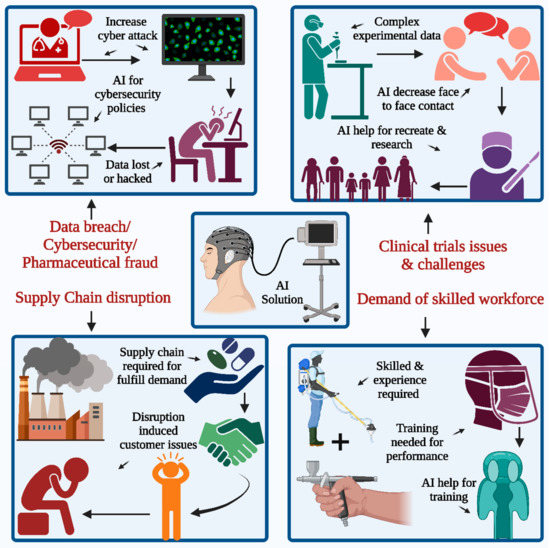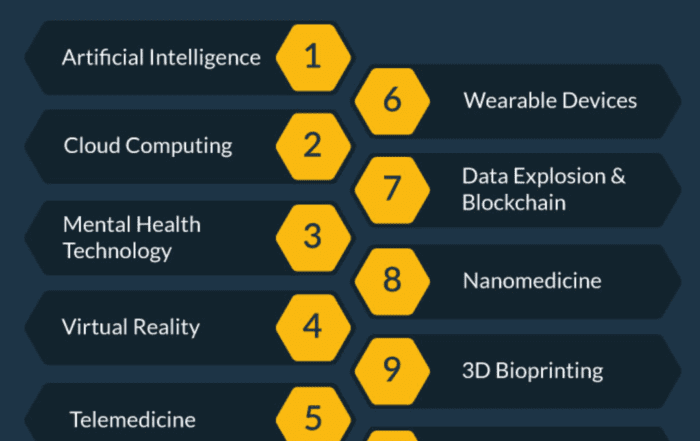From groundbreaking treatments to futuristic technology, discover how healthcare research is revolutionizing the industry with innovation in action.
Table of Contents
Medical research plays a crucial role in shaping the future of healthcare. With advancements in technology and evolving treatment methods, the landscape of healthcare is constantly changing. In this blog post, we will delve into the exciting world of medical research and explore the innovative developments that are revolutionizing the way we approach healthcare. From precision medicine to regenerative therapies, the possibilities are endless.
Precision Medicine
Precision medicine is a groundbreaking approach that tailors medical treatment to the individual characteristics of each patient. This personalized approach allows healthcare providers to deliver targeted therapies based on a patient’s genetic makeup, lifestyle, and environmental factors. By analyzing genetic data and other relevant information, precision medicine aims to optimize treatment outcomes and minimize side effects.
For example, in the field of cancer treatment, precision medicine has paved the way for more effective and less invasive therapies. By identifying specific mutations in a patient’s tumor through genetic testing, oncologists can prescribe targeted medications that address the underlying genetic abnormalities. This approach has led to better outcomes and improved quality of life for many cancer patients.
Genomic Medicine
Genomic medicine focuses on the study of an individual’s genetic information to understand disease susceptibility and inform treatment decisions. Advances in genomic research have enabled healthcare providers to offer personalized medicine based on a patient’s unique genetic profile. By analyzing an individual’s DNA, researchers can predict disease risk, customize treatment plans, and tailor preventive measures.
Genomic testing has the potential to revolutionize healthcare by providing valuable insights into a patient’s genetic predispositions. For example, genetic testing can identify gene mutations associated with hereditary conditions such as cystic fibrosis or breast cancer. Armed with this information, healthcare providers can offer proactive interventions and personalized treatments to mitigate disease risk.
Artificial Intelligence in Healthcare
Artificial intelligence (AI) is driving innovation in healthcare by revolutionizing the way medical research is conducted and treatments are delivered. AI algorithms can analyze vast amounts of healthcare data to identify patterns, assess risk factors, and predict outcomes. From diagnostic tools that aid in early disease detection to predictive analytics that optimize treatment plans, AI is transforming the healthcare landscape.

Image courtesy of www.mdpi.com via Google Images
NewsPeas.com is at the forefront of utilizing AI technology in healthcare research. By leveraging AI algorithms, researchers and healthcare providers can gain valuable insights into complex medical conditions, streamline diagnostic processes, and develop targeted treatment protocols. With AI-powered tools, the possibilities for improving patient outcomes and advancing medical research are limitless.
Regenerative Medicine
Regenerative medicine offers a promising new approach to treating a wide range of medical conditions by harnessing the body’s natural healing abilities. Through techniques such as stem cell therapy and tissue engineering, regenerative medicine aims to repair, replace, or regenerate damaged tissues and organs. This innovative field has the potential to revolutionize healthcare by providing alternative treatments for chronic diseases and injuries.
For instance, regenerative therapies have shown promising results in treating conditions such as spinal cord injuries, osteoarthritis, and heart disease. By utilizing the body’s own cells to stimulate repair and regeneration, regenerative medicine offers a novel approach to healing that could transform the way we manage complex health issues.
Challenges and Ethical Considerations
As with any innovative field, new healthcare research comes with its own set of challenges and ethical considerations. Balancing the pursuit of scientific advancement with patient safety and ethical standards is crucial to ensuring that new treatments are both effective and responsible. Researchers and healthcare providers must navigate complex regulatory frameworks and ethical dilemmas to maintain the integrity of medical research.

Image courtesy of oatmealhealth.com via Google Images
By addressing these challenges head-on and fostering open dialogue among stakeholders, the healthcare industry can continue to push the boundaries of medical research while upholding ethical standards and patient welfare. Through collaboration and transparency, researchers can navigate the complexities of new healthcare initiatives and deliver innovative solutions that benefit patients worldwide.
Conclusion
Medical research and evolving treatments are at the heart of shaping the future of healthcare. From precision medicine to regenerative therapies, each advancement brings us closer to personalized, effective, and sustainable healthcare solutions. As the healthcare landscape continues to evolve, the possibilities for improving patient outcomes and advancing medical knowledge are endless. With a focus on innovation, collaboration, and ethical responsibility, the future of healthcare holds tremendous promise for patients around the world.

